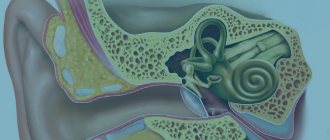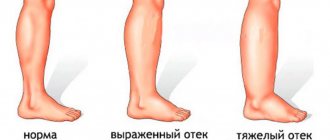Urethritis - features of the course in women
The causative agents of the pathology are fungi, microorganisms or sexually transmitted infections. The reason for the frequent diagnosis of urethritis in women is the anatomical structure of the female genitourinary system. The female urethra has a significant difference from the male excretory organ. The structure of the female urethra is wider and shorter, it has an outlet into the vagina, which facilitates easier penetration of various infections and pathogenic microorganisms into the bladder or kidneys. If urethritis is not diagnosed in a timely manner and untreated, the infection rapidly spreads through the urinary tract and leads to complications. Very often, cystitis (inflammation of the bladder) is a companion to urethritis. This disease has similar symptoms and is a complication of urethritis. A woman turns to doctors after the onset of cystitis.
Causes of the disease
In most clinical cases, the onset of chronic or acute urethritis in women can be avoided. All factors predisposing to the development of the disease are divided into infectious and non-infectious influences. The practice of urologists involves the treatment of urethritis - both the first and second types, but inflammation caused by pathogens is more common.
Pathogenic microflora is the penetration of bacteria, fungi or viruses into the urinary tract. But the most common is bacterial urethritis. If the patient has dysbacteriosis, then the development of fungal urethritis is more likely. The relationship between inflammation and pathogenic microorganisms can only be established in the laboratory.
Main reasons
Urethritis in women suggests the following factors:
- The presence of diseases of venereal origin. Both latent sexual infections and untreated diseases of the same type can lead to inflammation of the urethra.
- Periodic irritation of the urethra. This category includes wearing underwear that is too tight to the body, uncomfortable; the use of intimate hygiene products that contain aggressive chemical components.
- Scratching and, as a result, damage to the mucous epithelium of the genitals. More often, such a nuisance occurs due to intense itching that accompanies vaginal candidiasis in women.
- Damage to the mucous membrane as a result of medical procedures (evacuation of urine, installation of a urethral catheter).
- Failure to comply with personal hygiene rules (untimely change of underwear, prolonged absence of water procedures).
- Failure to comply with the sterility regime by employees of medical institutions (if bougienage of the urethra, catheterization or any other manipulation involving the use of instruments was carried out, and the equipment was not properly processed).
- Contact of the urethra with contaminated surfaces. This cause often causes urethritis in childhood. For example, if a girl sits with her naked body on the sand, bench, or ground.
- Intimacy with a partner who does not maintain personal hygiene.
- Hypothermia (not only general, but also local).
- Violation of the circulatory process in the pelvis.
- The presence of chronic inflammation of the kidneys or bladder.
Also, inflammation of the urethra in women occurs due to poor nutrition - the predominance of salty, acidic foods in the diet, which irritate the walls of the urinary tract. In certain cases, urethritis develops due to increased sweat secretion on the surface of the genitals (if it is not promptly eliminated through water procedures, perspiration will irritate the urethra). Which doctor to contact directly depends on the spectrum of the lesion - if the disease is limited only to the organs of the urinary tract, treatment is carried out by a urologist, when the genital organs are involved - by a gynecologist or a venereologist.
Urethritis in women - symptoms
The first signs of urethritis in women do not have clear characteristic symptoms. A woman experiences discomfort, pain, pain when urinating, which interferes with her daily life. This symptom is the initial stage of the presence of inflammation. As a rule, women do not rush to see doctors, since the unpleasant symptoms pass rather quickly, changing into another form, and the disease continues to develop. At the next stage, pain and cramps appear more often and are more pronounced. Sharp pain and stinging can appear not only when urinating, but becomes constant. Without proper treatment, there is a possibility of further infection of the urinary organs. Complications such as inflammation of the appendages, endometritis and other diseases of the female genital area are possible. The most unfavorable outcome of the disease is infertility.
Most often, the development of urethritis is indicated by the following symptoms:
- Frequent urge to go to the toilet, burning sensation, sharp pain when urinating.
- Redness, itching, burning pain in the vagina, which intensifies during menstruation.
- With chronic urethritis - pain and cramping above the pubis, lower abdomen.
- The appearance of purulent discharge with a specific odor from the urethra, the color of the discharge from greenish to yellow.
- Detection of blood in urine.
Female urethritis: types
In medicine, there are several types of urethritis, depending on what caused the pathology:
- Infectious urethritis caused by specific pathogens: chlamydia, ureaplasma, mycoplasma.
- Nonspecific urethritis in women caused by streptococcal, staphylococcal infections, gonococci.
The main types of urethritis in women:
- Candidal urethritis. The occurrence of the disease is facilitated by infection of the urethra and its mucous membrane with a fungus of the genus Candida. The cause of infection is most often a decrease in the patient’s immunity and prolonged use of antibiotics. This type of disease often develops into chronic urethritis in women.
- Allergic urethritis. Inflammation in the urethra is caused by various substances, medications or foods that cause an allergic reaction and swelling of the urethral mucosa. This type of urethritis is dangerous because it can lead to complete blockage of urine exiting the urethra.
- Bacterial urethritis. The pathology develops against the background of nonspecific microorganisms entering the urethra (Escherichia coli, staphylococci, streptococci, enterococci). Pathogens, being in the urethra, are activated when the immune system decreases. Treatment of pathogenic microflora requires a professional and competent approach.
- Trichomonas urethritis. This type of pathology develops against the background of the patient becoming infected with Trichomonas infection, transmitted through sexual contact. The insidiousness of this disease is that the first symptoms of Trichomonas infection appear only 10-14 days after contracting a sexually transmitted infection. Untimely treatment can develop into chronic urethritis, which is more difficult to treat.
Prices of medicines for urethritis
The estimated cost of the main antibiotics and uroantiseptics used for urethritis is given below.
| Azithromycin | 3 tablets of 500 mg – 4.90 $ |
| Metronidazole | 20 tablets of 250 mg – 0.42 $ |
| Cefixime | 10 tablets of 400 mg – 7.36 $ |
| Doxycycline | 10 capsules of 100 mg – 0.25 $ |
| Erythromycin | 20 tablets of 250 mg – 2.18 $ |
| Ofloxacin | 200 mg tablets, 10 pcs. – 0.77 $ |
| Canephron | 60 dragees – 8.55 $ |
| Urolesan | 40 capsules – 6.71 $ |
| Nitroxoline (5-NOK) | 50 tablets of 50 mg – 3.35 $ |
The price of ointments ranges from $1.5-8. The cost of vaginal and rectal suppositories is $1-11 per package.
Any types of medications prescribed for urethritis are available for purchase both in regular and online pharmacies.
https://youtu.be/E_3xBZV6CN8
Causes of urethritis in women
The following factors can cause the development of pathology of the genitourinary canal:
- Unprotected sexual intercourse with a new partner. Infections transmitted through sexual contact cause the development of the disease.
- Hypothermia of the genitourinary organs.
- Temporary weakening of the immune system, changes in hormonal levels in women due to pregnancy, menstrual cycle, menopause.
- Gynecological diseases that reduce local immunity.
- Consumption of spicy, salty, smoked foods, and alcoholic beverages aggravate the problem and lead to an exacerbation of the disease.
- Cystitis can either provoke urethritis in women or be a consequence of a disease of the urinary canal.
Causes of inflammation of the urinary tract
The etiology of inflammation of the urethra in women can be of two types, which determines the type of urethritis.
The first reason is infectious influence factors (microorganisms that enter the urethra and microbes that are present in the body of every person). Opportunistic microflora provokes the nonspecific development of urethritis. Such urethritis develops due to the pathological activity of microbes present in the body, which provoke inflammation due to the influence of certain factors. It could be:
- allergic reaction;
- decreased immunity;
- hypothermia;
- psychoemotional disorders;
- excessive alcohol consumption;
- poor nutrition, diets and vitamin deficiency;
- pregnancy period.
Hypothermia (hypothermia) – promotes inflammation of the urinary tract
The result of the influence of these factors is an imbalance of microflora and the development of nonspecific infectious urethritis.
Specific urethritis develops due to the entry into the microflora of gonococci, chlamydia, trichomonas, etc. This urethritis is sexually transmitted.
Urethritis - diagnosis
If you discover symptoms of urethritis, it is not recommended to engage in self-treatment; the right decision would be to contact a urologist or gynecologist, who will prescribe additional laboratory tests and examinations to the patient to establish the correct diagnosis. It is worth remembering that the female genital organs are in close connection with the urinary system; any disturbance of the microflora can cause inflammation of the urethra. The doctor examines the external opening of the urethra and diagnoses:
- General urine examination to identify the number of leukocytes and the presence of an inflammatory process; urine examination according to Nechiporenko and bacteriological urine culture to determine the etiological causative agent of the disease.
- Taking a scraping from the urethra using the PCR method and examining the material.
- Urethroscopy is an instrumental method for examining the mucous membrane of the urethra.
Traditional treatment of urethritis in women
Complex treatment of urethritis with medications allows you to completely recover from an unpleasant disease. Self-treatment without the necessary course of antibiotics can lead to serious complications, and urethritis can become chronic. Treatment of urethritis in women at home should be aimed only at relieving and weakening the symptoms of the disease, and be used as an addition to the main complex treatment.
- Parsley infusion: 1 tbsp. Pour parsley leaves into 500 ml of cold water and let it brew in a dark place. Apply the infusion orally, 3 tbsp. l. every two hours.
- Herbal tea from currant leaves. Pour 3 teaspoons of raw materials into 0.5 liters of boiling water, leave for about 20 minutes, like tea. Drink herbal tea throughout the day.
- Linden blossom tincture. To quickly eliminate burning, pain and itching, use a proven recipe for linden tincture: 2 tbsp. l linden blossom pour 2 tbsp. boiling water and put on fire. Boil the linden for about 10 minutes over low heat, then cool and strain. Take half a glass of tincture before bed.
Antibacterial therapy
When there is a need to treat women for urethritis, drugs are selected on an individual basis. Treatment of a simple form of urethritis takes place at home and does not require hospitalization. The main method of therapy is the use of antibacterial agents (with the exception of the fungal form). They can be prescribed in the form of injections, tablets, and ointments. The type of drug is selected by the doctor based on an analysis from the urethra, which determines the type of pathogenic flora. Analysis of flora and sensitivity to certain antibiotics is done for about a week. Therefore, initially the specialist prescribes a broad-spectrum drug that acts on several types of microorganisms. These medications include:
- Cephalosporins - made on the basis of aminocephalosporic acid and are able to kill infections that are resistant to penicillin, therefore they are considered stronger. These include Ceftriaxone, Cefazolin, Cefotaxime.
- Tetracyclines have a pronounced bacteriostatic effect, due to which protein synthesis is suppressed in the microorganism cell. When metabolic processes slow down, the microbe gradually dies. The most common drugs are Doxycycline and Tetracycline hydrochloride.
- Macrolides – have a bacteriostatic effect on microorganisms; unlike previous remedies, they are sensitive to chlamydia, mycoplasmas, and spirochetes. Azithromycin and Erythromycin are most often prescribed.
All antibacterial drugs are contraindicated in pregnant women because they have a toxic effect on the fetus. Women who are pregnant and during lactation are prescribed the drug Monural. This is a modern broad-spectrum antibiotic whose active ingredient is fosfomycin. It has a bactericidal effect on most gram-positive bacteria.
If no improvement is observed during antibacterial therapy, after obtaining microflora tests, a drug that is sensitive directly to this pathogen is replaced.
Prevention of urethritis in women
To protect yourself from this insidious disease, a woman needs to maintain a correct lifestyle and take preventive measures:
- When having sexual intercourse, be sure to use barrier contraceptives to protect yourself from contracting sexually transmitted and infectious diseases. As a rule, a woman gets urethritis after sexual intercourse with an infected partner. In women, the infection manifests itself much later than in men and quickly spreads to all organs of the genitourinary system.
- To reduce the number of pathogenic organisms after sexual intercourse, you need to urinate - some of them will be washed away in urine.
- It is imperative to maintain personal hygiene, which is the basis of women's health.
- Visit your gynecologist regularly; at the first corresponding symptoms when urinating, contact a specialist immediately.
- Try to maintain your immunity by taking a course of multivitamins, avoid stress and hypothermia.
All women should remember that urethritis is easier to treat at the initial stage, so taking good care of your body and health will help you avoid the main factors of the disease that provoke the development of the disease.










